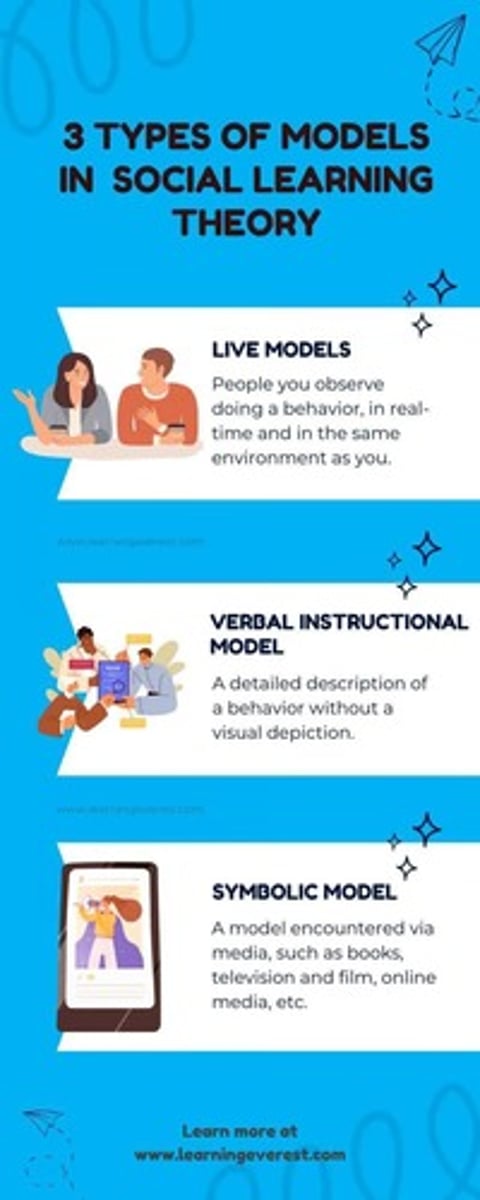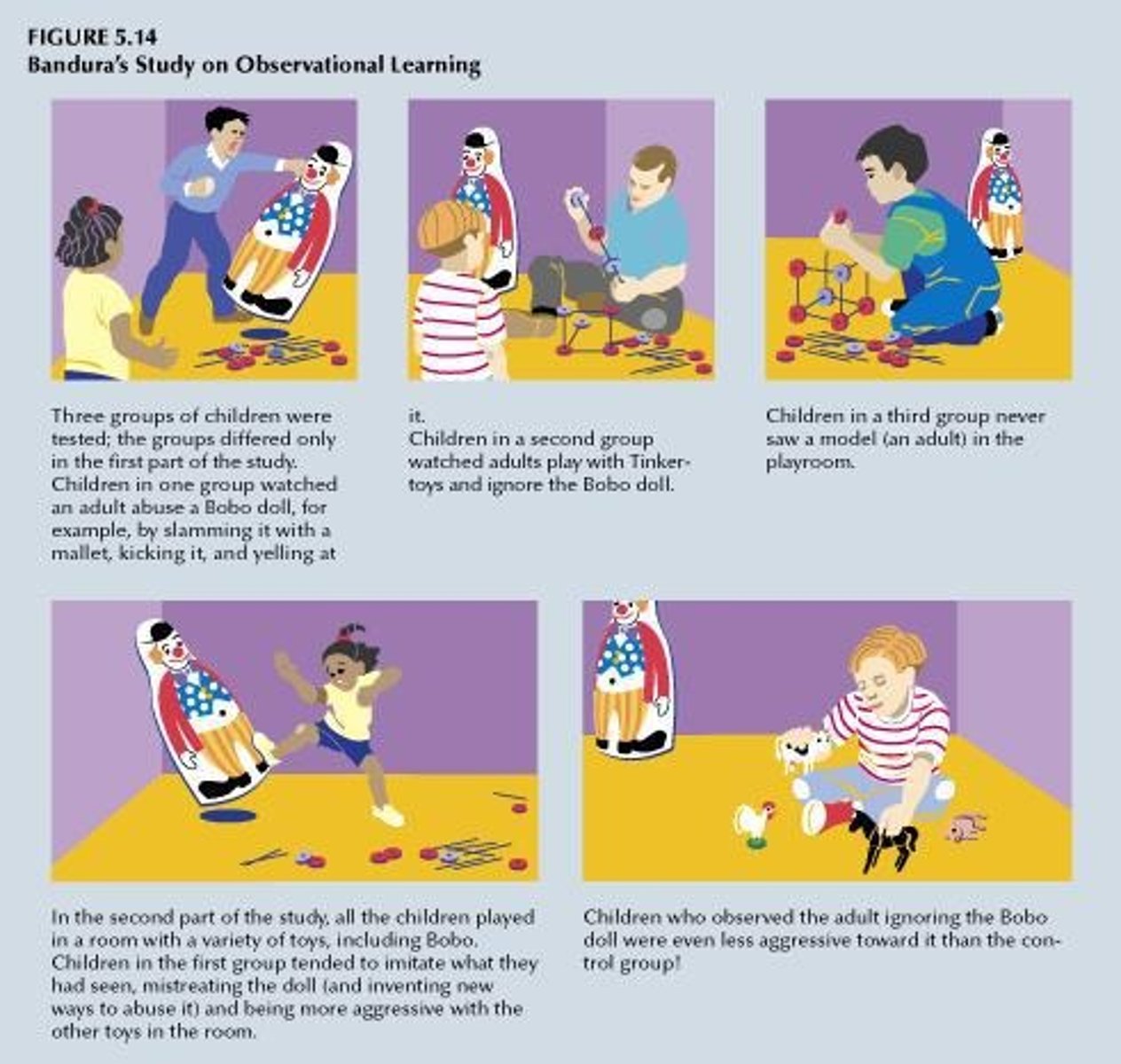Teori Personaliti Albert Bandura
1/27
There's no tags or description
Looks like no tags are added yet.
Name | Mastery | Learn | Test | Matching | Spaced | Call with Kai |
|---|
No analytics yet
Send a link to your students to track their progress
28 Terms
Albert Bandura
Psychologist known for Social Learning Theory.
Social Learning Theory
Behavior learned through social observation.
Observational Learning
Learning by watching others' behaviors.
Vicarious Reinforcement
Learning by observing consequences of others' actions.
Cognitive Processes
Mental processes influencing learning and behavior.
Modeling
Imitating behaviors observed in others.

Bobo Doll Experiment
Study showing children imitate aggressive behavior.

Self-Efficacy
Belief in one's ability to succeed.
Attention (Attentional)
Focusing on the model to learn behavior.
Retention (Retentional)
Remembering observed behaviors for future imitation.
Production
Translating observed behaviors into action.
Incentive & Motivation
Factors influencing the likelihood of behavior imitation.
Factors Influencing Modeling
Model characteristics, observer traits, and rewards.
Model Characteristics
Traits that make a model influential.
Observer Characteristics
Traits of the observer affecting imitation.
Reward Related to Behavior
Consequences observed that affect behavior imitation.
High-Status Models
Influential figures more likely to be imitated.
Learning Experiences
Childhood experiences shape adult behavior.
Behavior Control
Behavior influenced by cognitive and environmental factors.
Behavioral Modification
Changing behavior through observation and imitation.
Emotional Arousal
Physiological state affecting self-efficacy.
Past Achievements
Previous successes influence self-efficacy beliefs.
Verbal Persuasion
Encouragement that boosts self-efficacy.
Vicarious Experience
Learning from others' successes or failures.
Cognitive Skills
Mental abilities affecting learning and behavior.
Behavior Imitation
Replicating actions observed in others.
Behavioral Consequences
Outcomes that influence future behavior choices.
Realistic Task Performance
Achieving tasks to maintain self-efficacy.